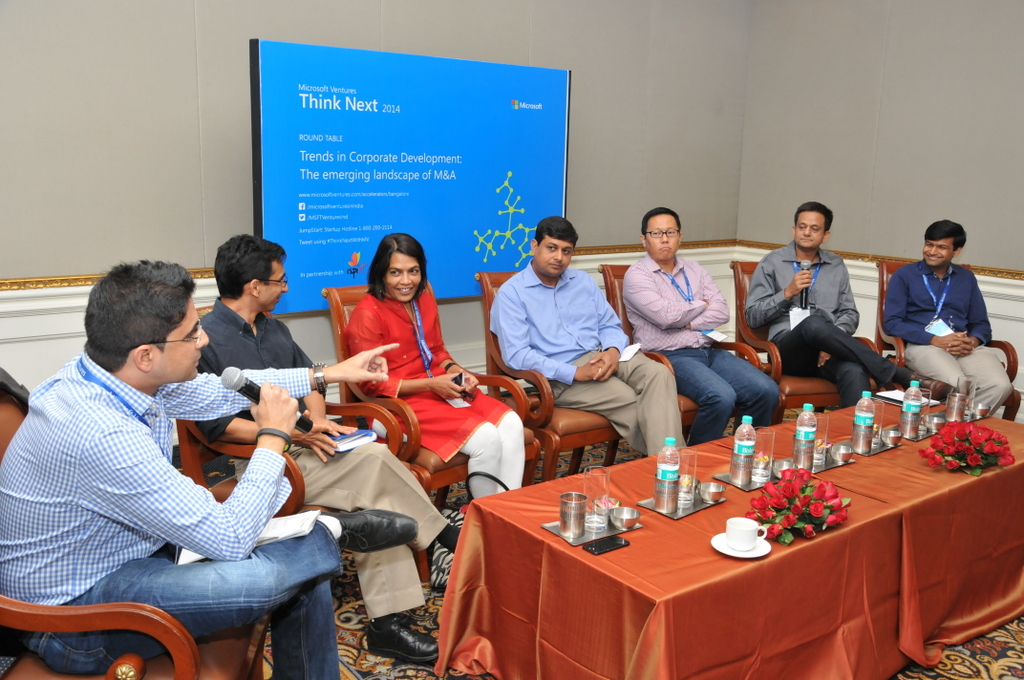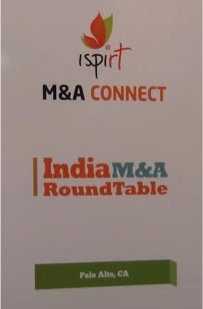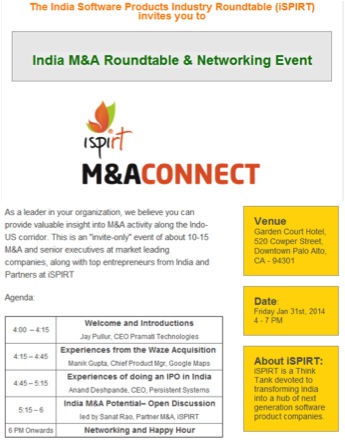
$8B of venture investment went into Indian startups in 2015 alone! Four firms–Ola Cabs, Flipkart, Snapdeal, Paytm–accounted for 32% of these investments. However, on the M&A side, things have been slow. Since 2011, there have been approximately 190 transactions valued at a total of $2.3B (about $11M per deal), placing India way behind the U.S., Israel, and other startup ecosystems.
I recently hosted a roundtable on M&A at Microsoft Ventures’ Think Next in Delhi, called “The Road to Startup Exits.” Our star panel consisted of Ashish Gupta(Helion Ventures), Deepak Gaur (SAIF Partners), and Abhishek Kumar (Snapdeal). Among a marquee audience of VCs, entrepreneurs, and senior execs from the industry, we discussed the present M&A scenario, its gaps, and the future.
Here is a glimpse of the insights generated during the panel:
- There is a slowdown in private markets globally, including in the U.S. and India. Valuations are expected to come down in 2016 and will cause grief for some investors, but the long term promise of India is in tact. In other words, there is no issue with fundamentally strong companies being built in India, but there is an issue with them being overvalued.
- This is a normal cycle for the startup/venture space: there will be several startups who will not survive the slowdown and will get integrated into other startups or corporates. A slowdown is actually good for the startups that survive – they can finally focus on getting their unit economics right, hiring the right talent and focus on what needs to be done to get to the next level. This also contributes to the ecosystem’s evolution, shaping the next waves of entrepreneurs and their offerings.
- Some recent examples of companies who had a solid team and business model, but that were unable to scale (subscale), are Qikwell (acquired by Practo for ~$50M), Exclusively (acquired by Myntra for their private label offerings), and Letsbuy (acquired by Flipkart). TaxiforSure’s (TFS) acquisition by Ola was about the power of financing–Ola had raised significantly more money than TFS, and at that point, TFS’s volume was still interesting for Ola and Uber, which justified Ola’s decision to acquire TFS.
- Large startups are more open to leveraging other startups and their offerings. For instance, Snapdeal has been a prolific acquirer of Indian startups (15-16 to date), primarily to plug their own gaps in terms of technologies, products or customers. For example, the product from Martmobi became the basis of Shopo, the C2C platform for Snapdeal. Freecharge was one of the fastest growing mobile wallets in the country and post-acquisition now has become Snapdeal’s payments business.
- Companies stay private much longer in the U.S. This will play out in India, too, and fewer companies will go for IPOs in coming years–and the ones who do might not consider doing it in India. The capacity of the India market to absorb large IPOs is restricted–there is limited float. Although regulations are becoming favourable, the India market today still has very stringent guidelines on public listing with very high levels of scrutiny and liability. Hence, listing a company in the U.S. is a lot more attractive, even for an Indian company.
In summary, 2016 is expected to see a slowdown in the funding space both globally and in India, which in-turn will drive an uptick in the number of M&A transactions as companies who are unable to raise their next financing round will seek an exit option.
Want to see the entire Think Next Roundtable? Watch it here:


 Last Friday, I hosted the M&A Panel at
Last Friday, I hosted the M&A Panel at 
